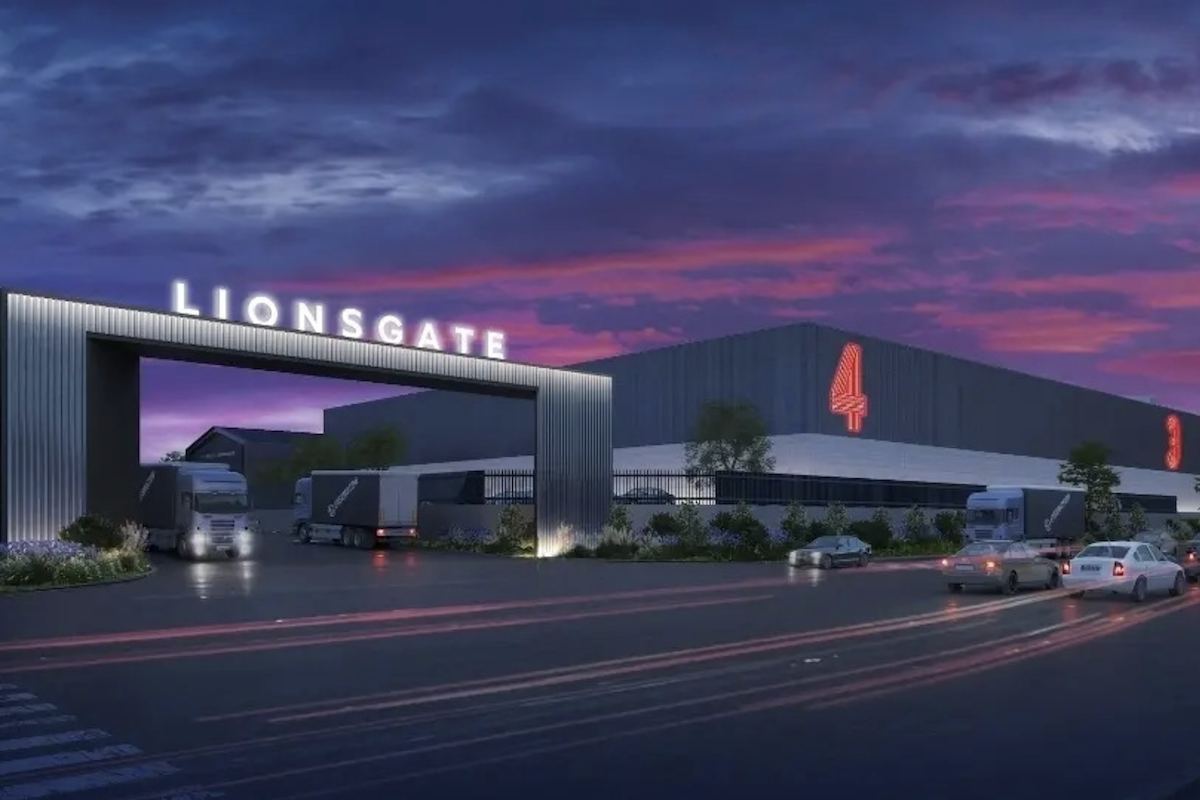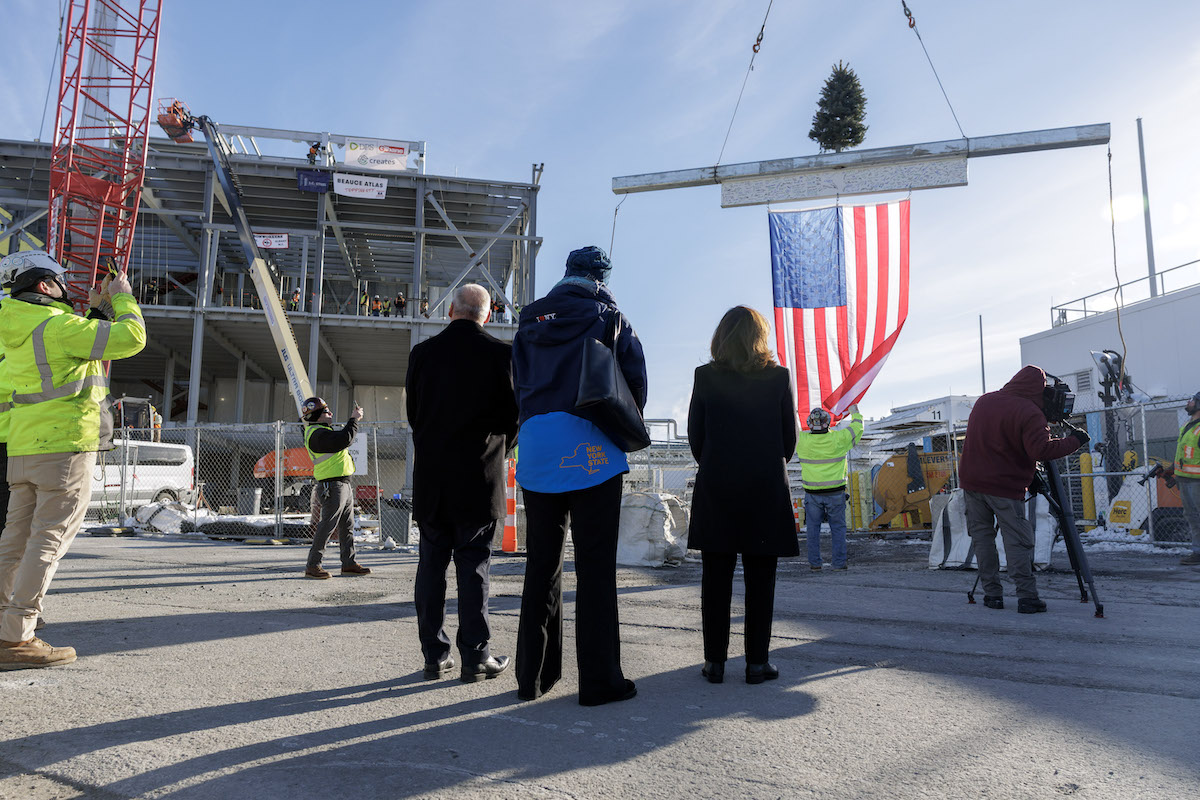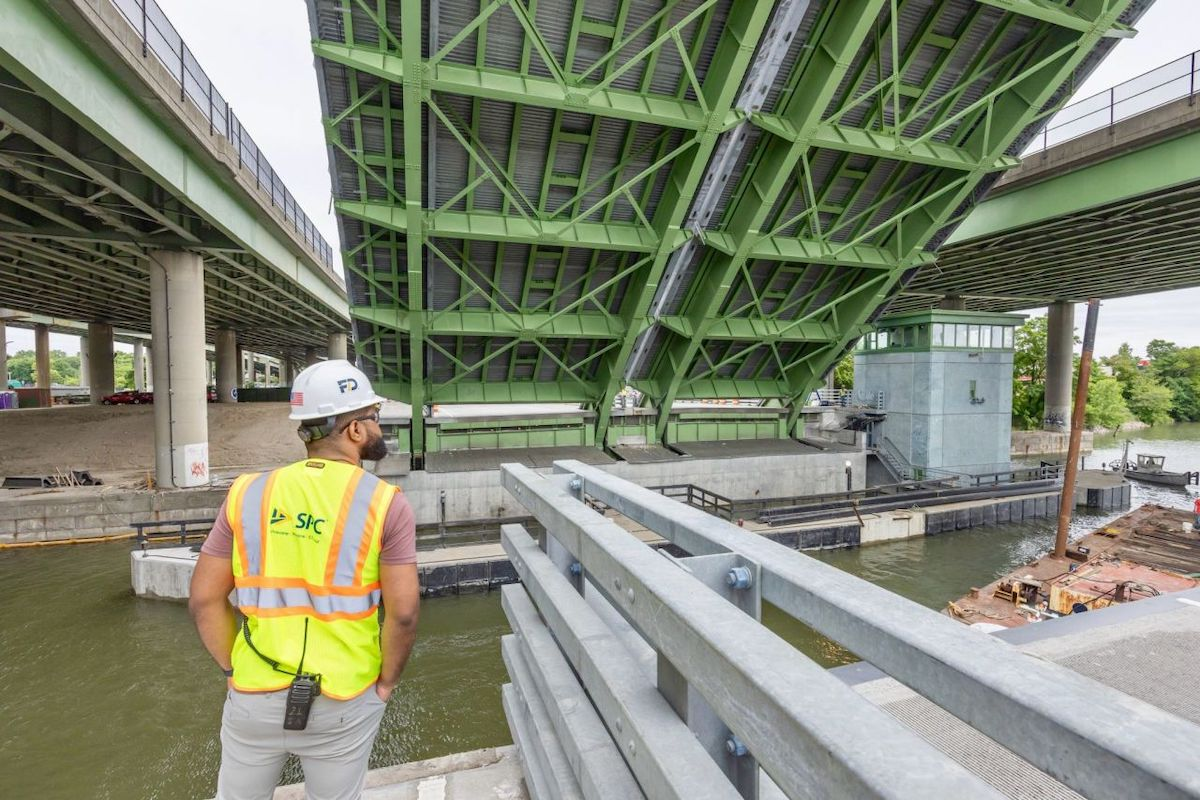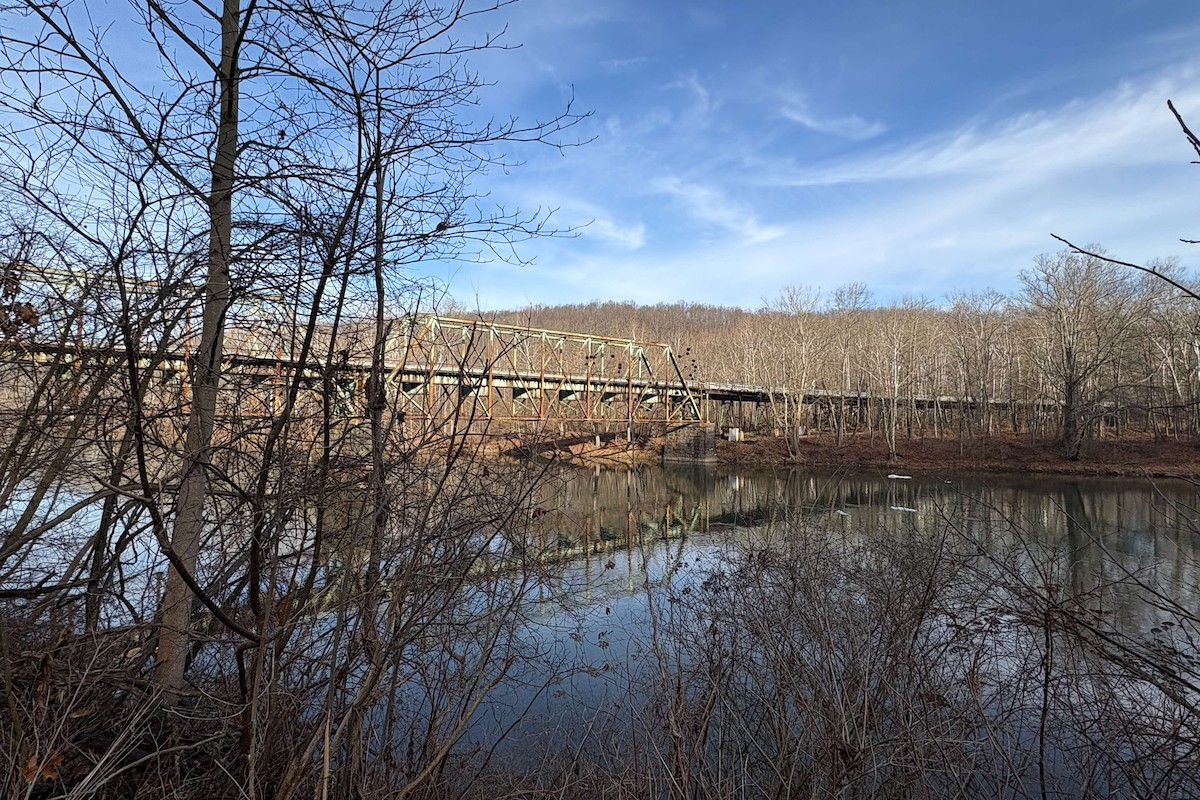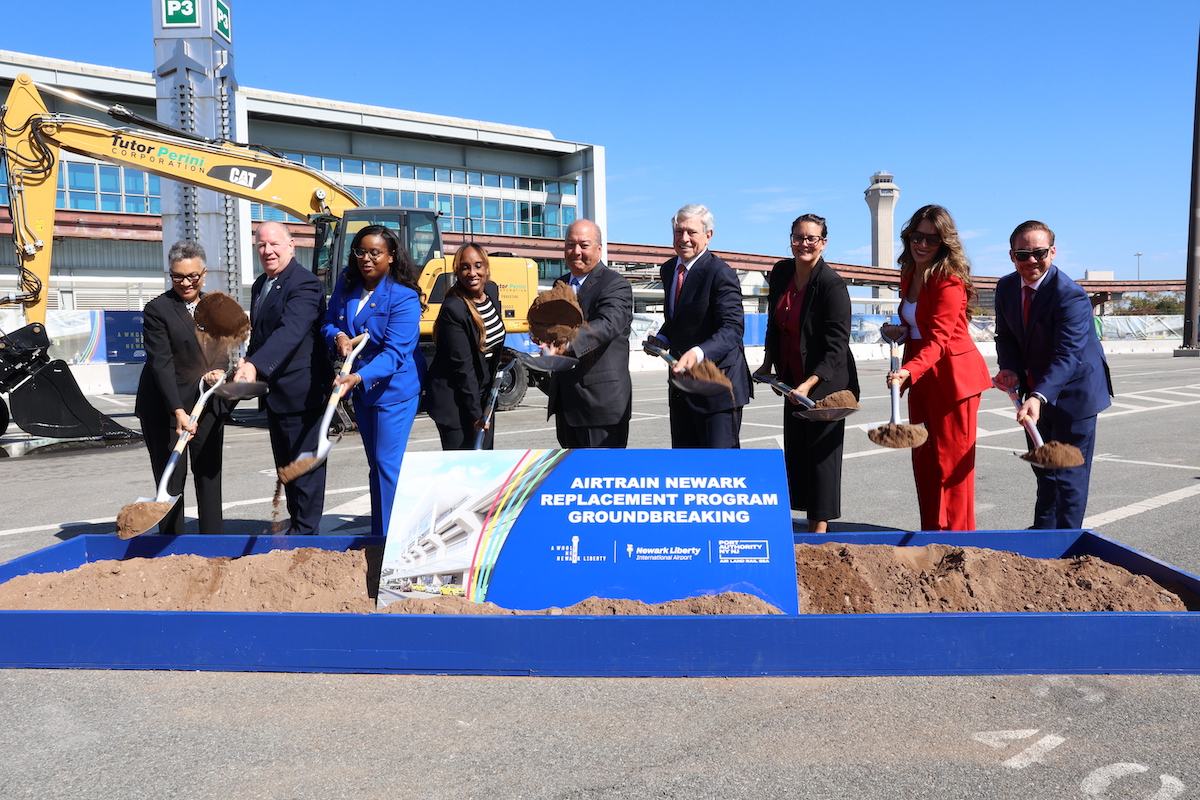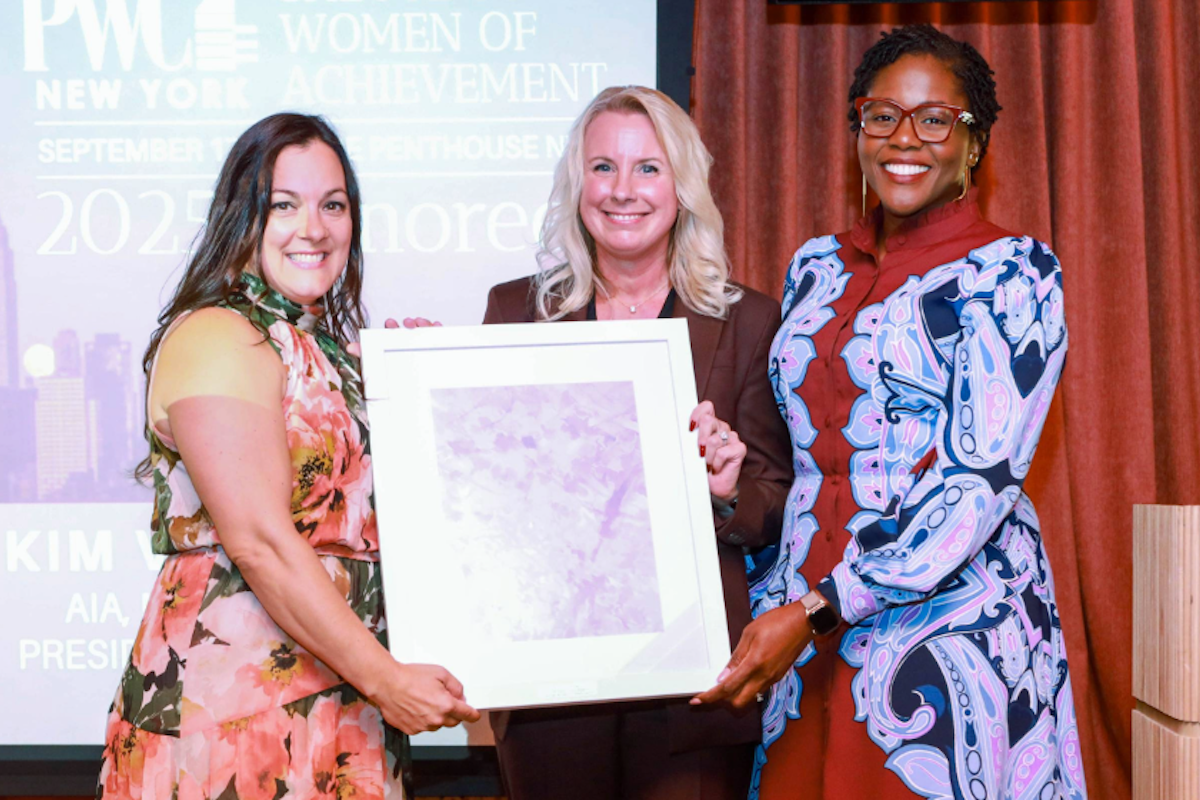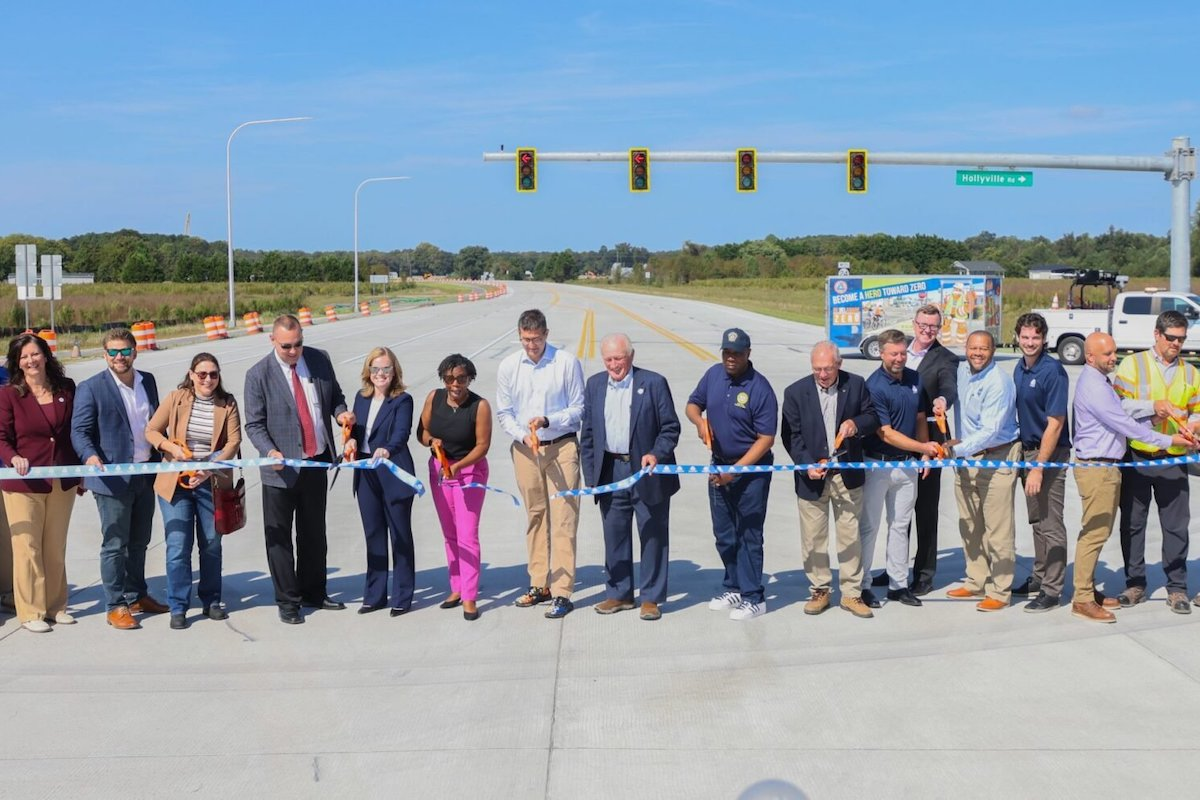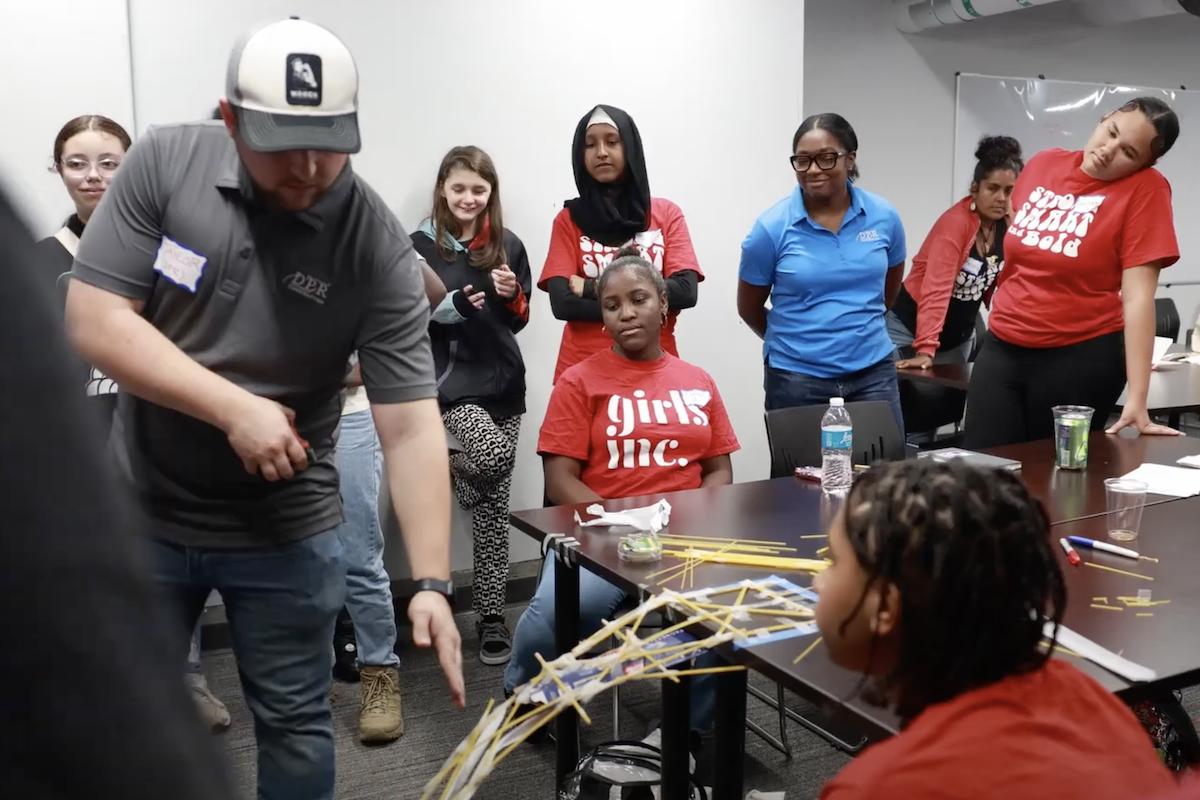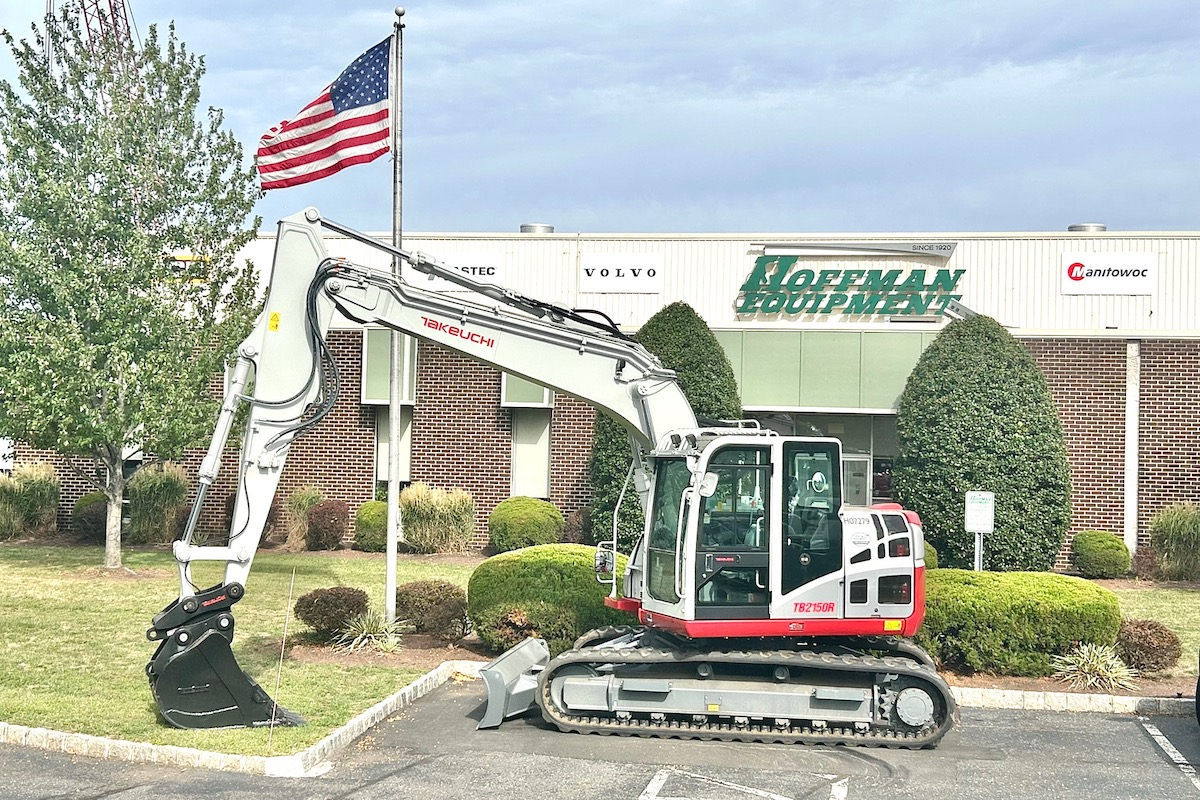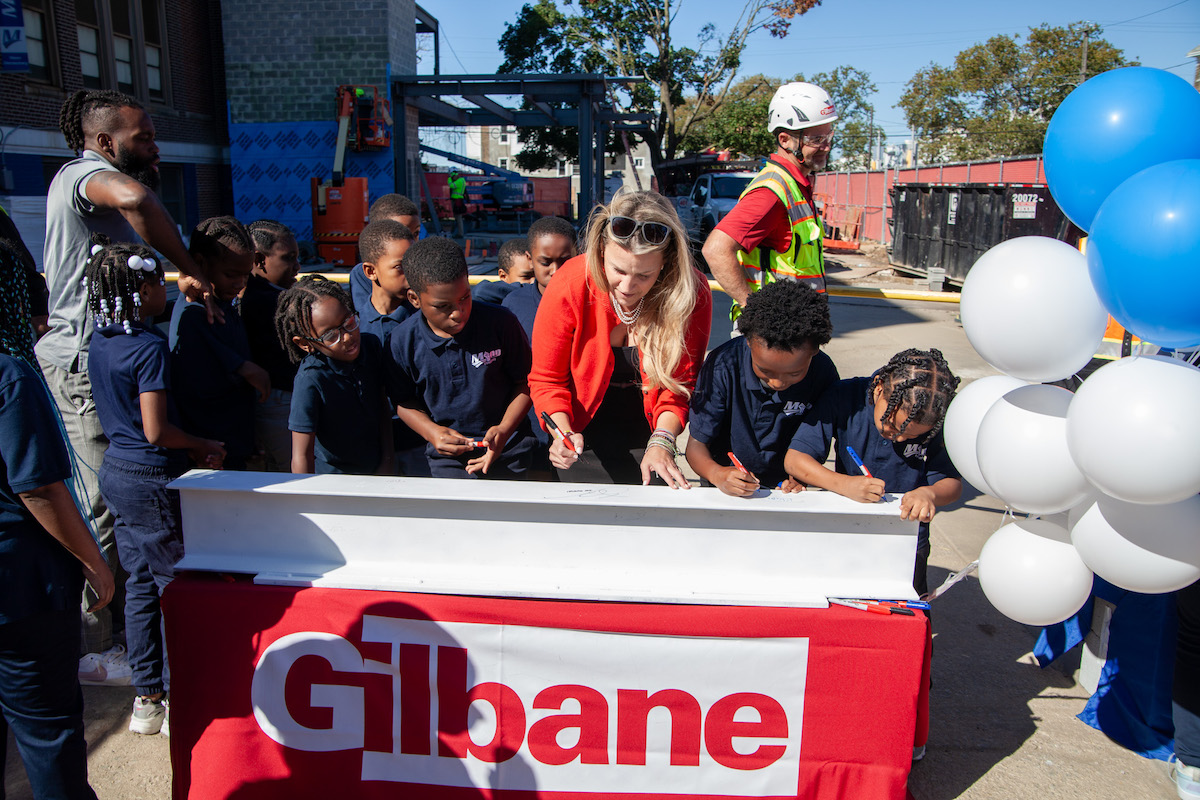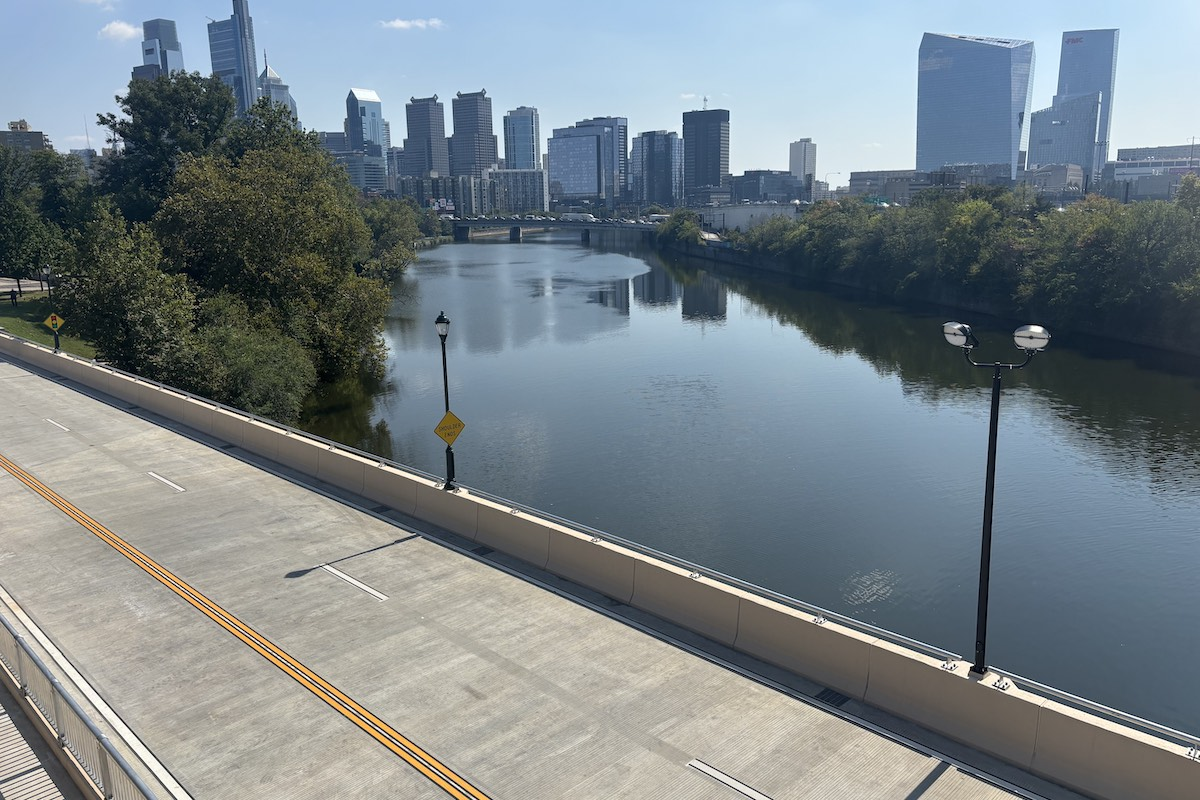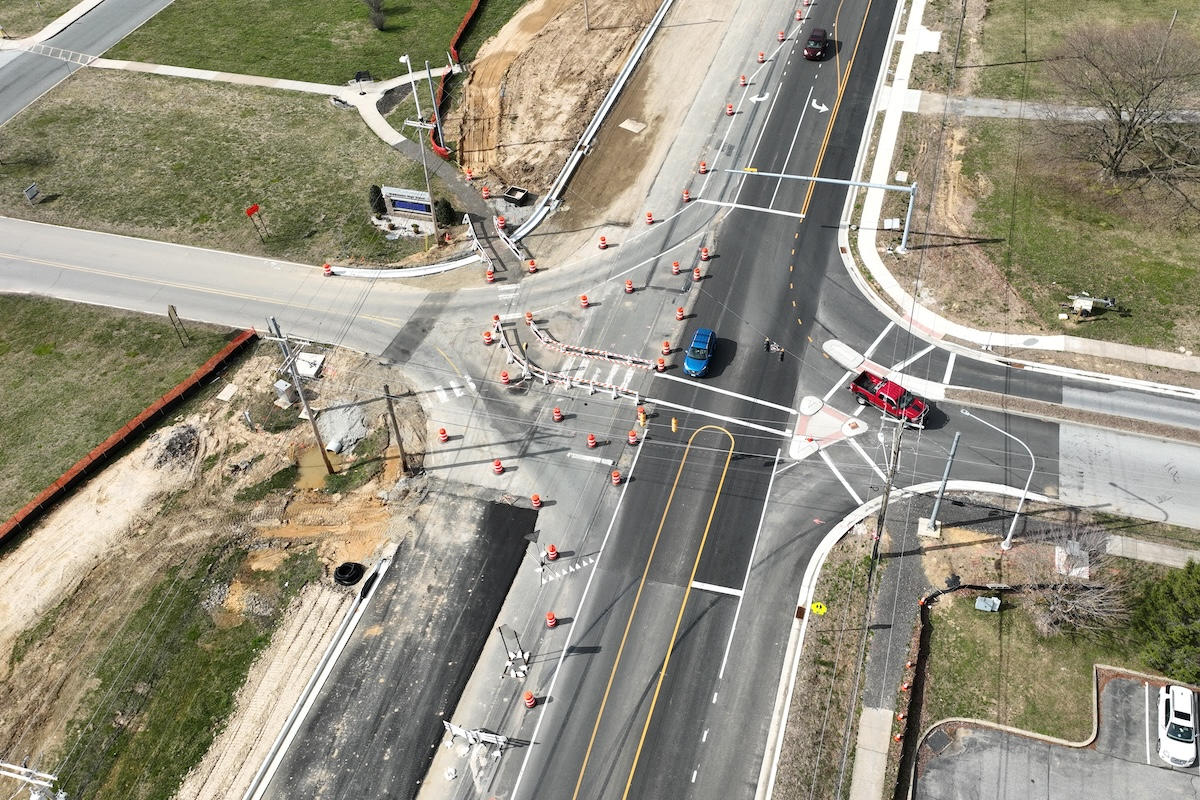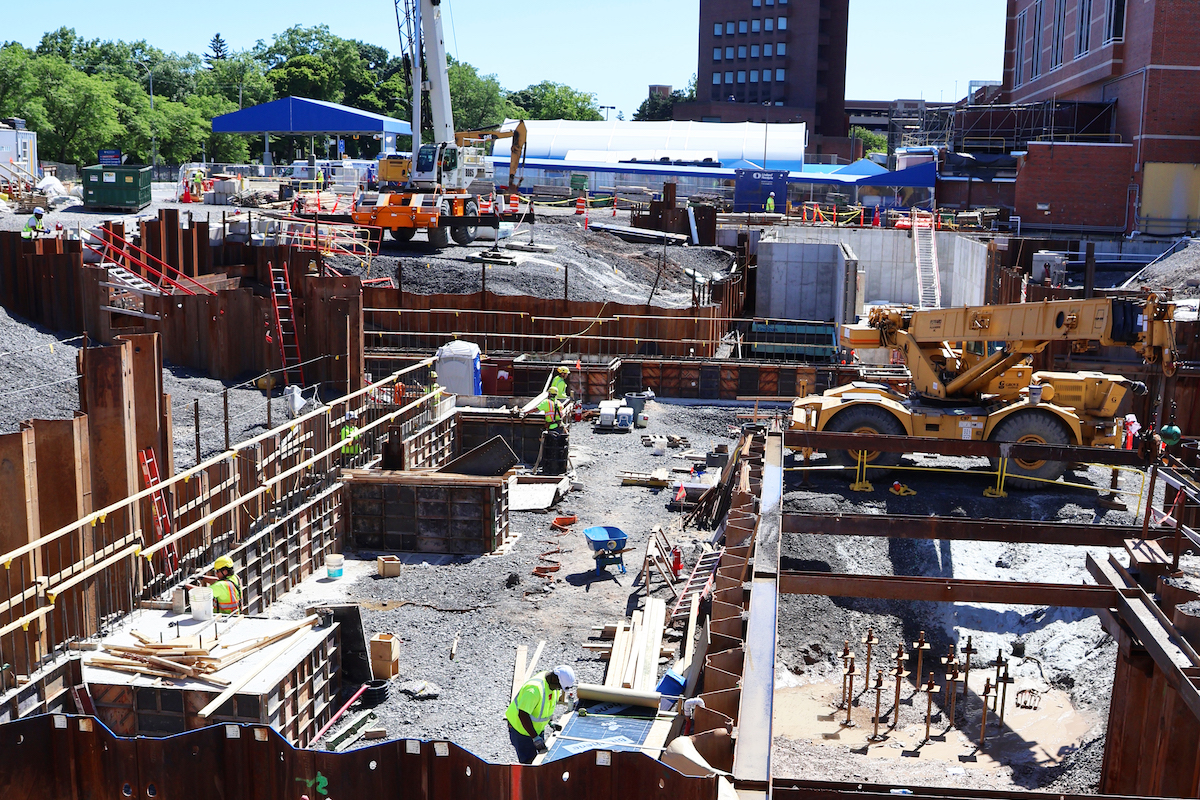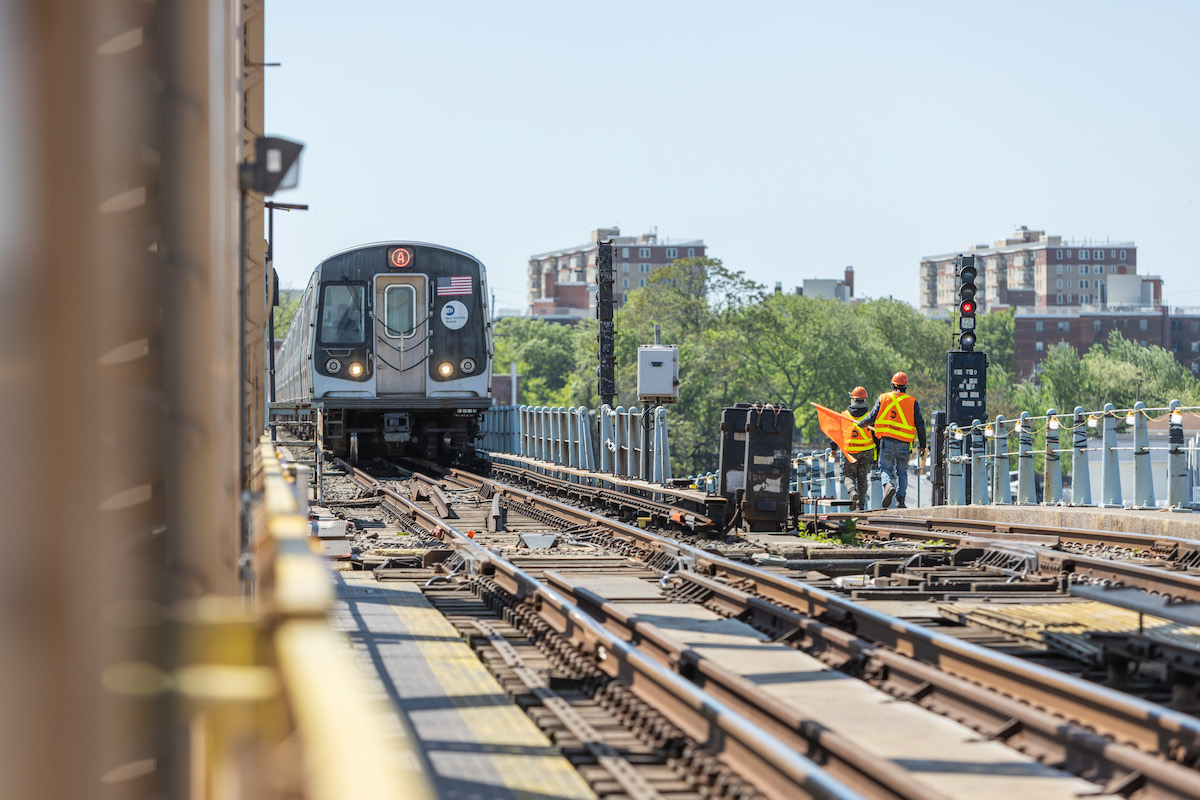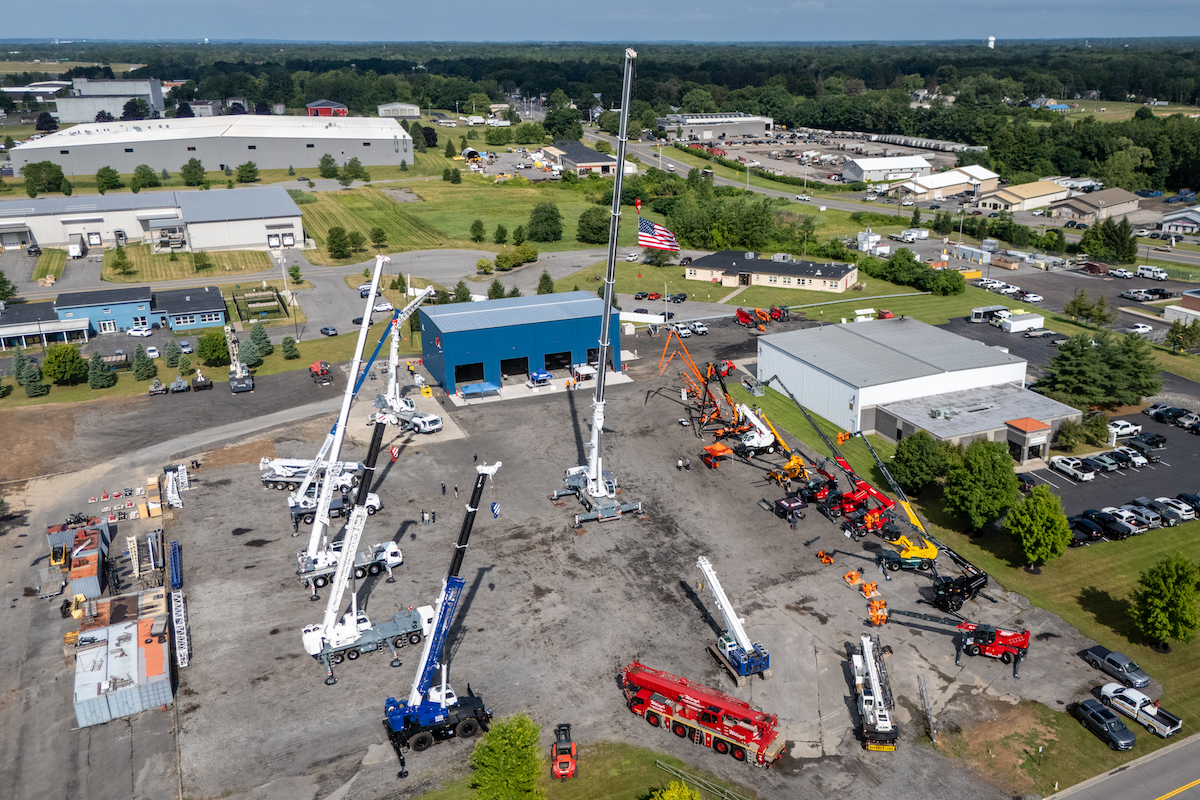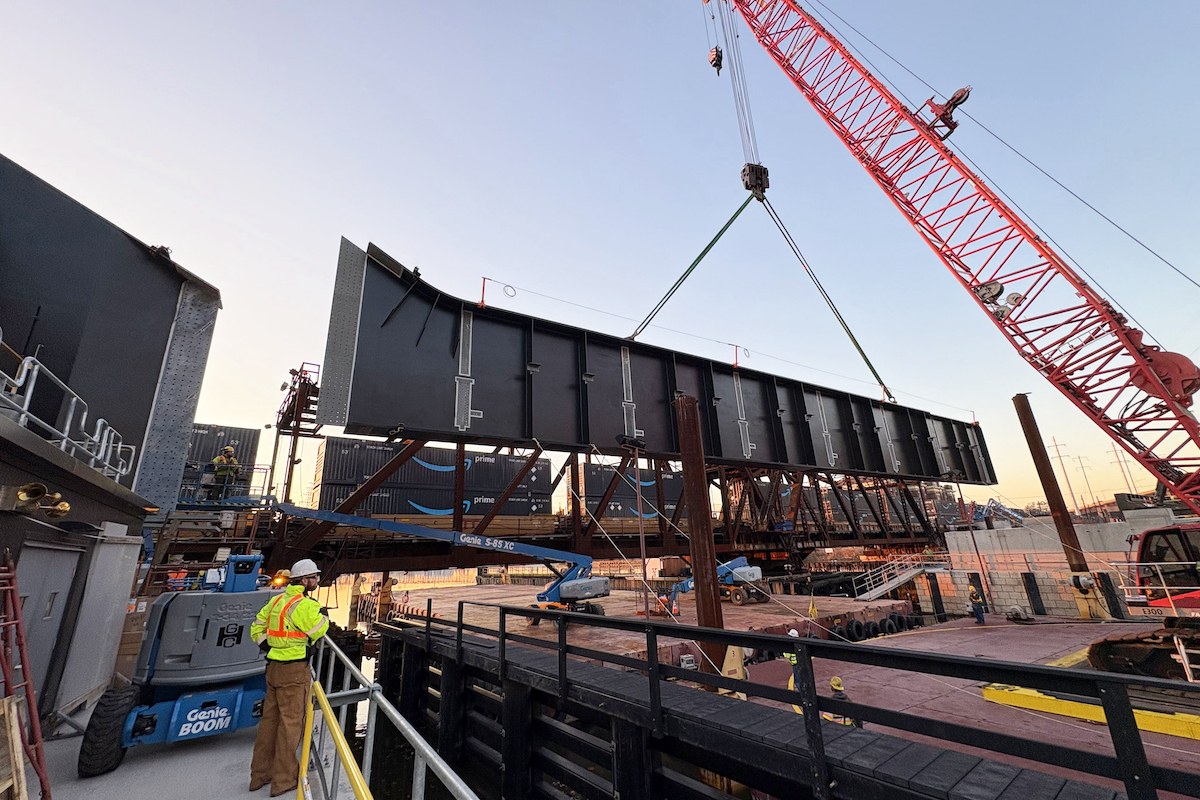Therefore, the Pave the Way I-496 project is focusing on reconstructing over 5.5 miles of freeway. MDOT will be rehabbing and replacing old pavement, extending ramps for safety purposes, and rehabbing 14 bridges. Other work includes installing open graded drainage and installing a 10-inch-high performance pavement.
According to Early, the majority of the bridge work will be minor though two of structures are getting new decks. It’s expected that the improvements to the entrance and exit ramps will reduce weaving and make for a smoother and easier merge onto the mainline.
The contractor was able to reuse the 50-year-old sand subbase that was originally underneath the old concrete pavement. The sand subbase was determined to still meet the current quality and gradation standards. This has led to a cost savings. In addition, the original concrete pavement is being reused rather than being hauled away to a landfill. It’s being crushed on site by the project specific crusher and used in the pavement section as 6-inch, open-graded drainage course under the new concrete pavement.
In order to better manage expenses, the Pave the Way I-496 project is being packaged with another project on nearby Waverly Road. Waverly Road is being reconstructed under I-496 and a shared use path is being incorporated. Both projects have the same contractor. “Packaging the projects allows us to streamline the work, have better coordination, and enjoy economies of scale benefits.” The Waverly project is funded with both Federal and Ingham County Road Department dollars.

| Your local Trimble Construction Division dealer |
|---|
| SITECH Allegheny |
| SITECH Northeast |
The project officially began on April 1, 2020. The lion’s share of the construction is expected to be complete by November. On schedule so far, Early is confident the project will be completed on time. He credits favorable weather as a major factor for keeping the project moving.
In addition, the team was able to move forward during the pandemic. “We only had the bridge subcontractor that self-suspended operations for two weeks to make sure things would settle down,” says Early. “The others were able to keep working and move forward on the project in accordance with the Governor’s Executive Order and the CDC guidelines.”
This is the first significant highway construct project in the area in 10 years, and things have changed in that time. One example of change is the contractor built a model without string lines for grading and paving on the project. “This is newer for us, and it’s definitely much faster and more precise,” says Early.
Besides stringless paving, the contractor has a portable concrete batch plant right on site. It was assembled on-site and will be dissembled and taken to the contractor’s next job upon completion of the project.
“We evaluated the anticipated project work and determined that directional closure would allow us to complete the project in one year,” says Early. “We saw it as a win-win because it would minimize the impact on the public and allow construction to proceed in the safest and most efficient way possible.”
The contractor is working on one side of the road, and once completed, the other side of the freeway will be worked on. The first closure was of eastbound I-496 and that is to last until mid-summer. Construction will then take place on westbound I-496, which is to last until November.

| Your local Trimble Construction Division dealer |
|---|
| SITECH Allegheny |
| SITECH Northeast |
This setup makes it, “safe for the contractor since there is no mixing of the public, and we don’t have to worry about the public going through a work zone,” says Early. There’s a signed detour though other routes are also being taken. Early says, “We changed the signal timing on the signed detour to minimize delays as we knew there would be much more traffic.”
While there won’t be lane closures after November, the team will still have restoration work to do as well as bit of bridge work. Early expects all work to be complete in 2021.
“The existing road was in rough shape, so people knew there was a need for the project,” says Early. “The public can see the entire work zone and the progress we’re making.” Part of the appreciation comes from the clear and quick progress that is being made. Early adds “the road looks great so far,” which also encourages the public.
There has also been significant public outreach to keep the public updated on the progress of the project. Outreach includes public meetings, a project specific website and bi-weekly email blasts to interested stakeholders that sign up for the updates.
Upon completion, Early believes the project will be a big benefit for the area. It will provide improved access to the west end commercial area and a smoother ride.

| Your local Trimble Construction Division dealer |
|---|
| SITECH Allegheny |
| SITECH Northeast |












